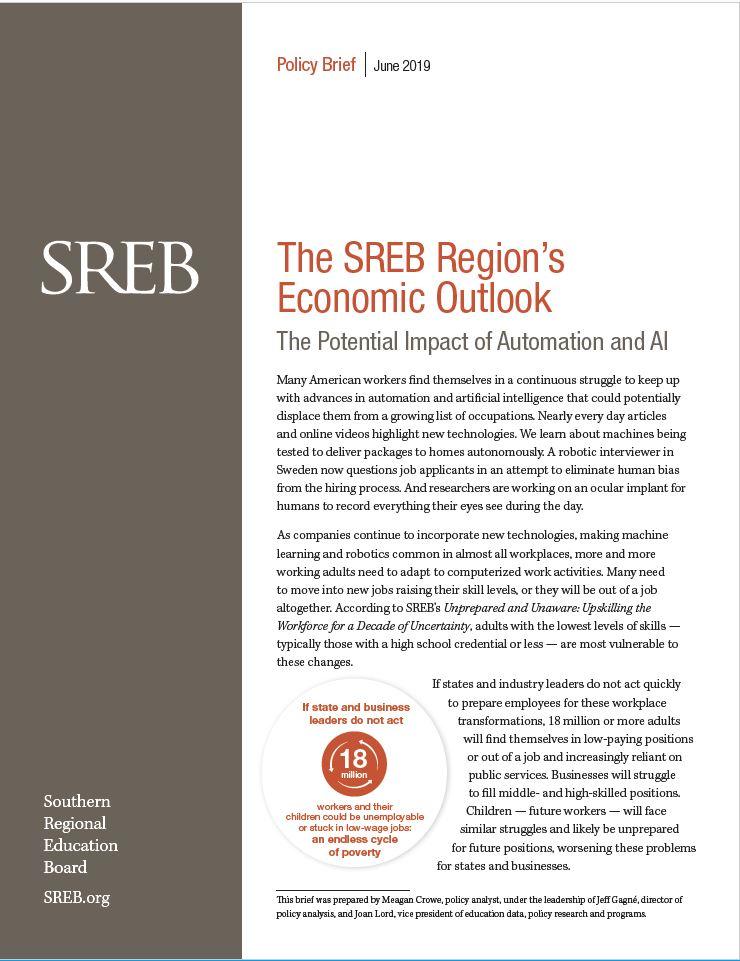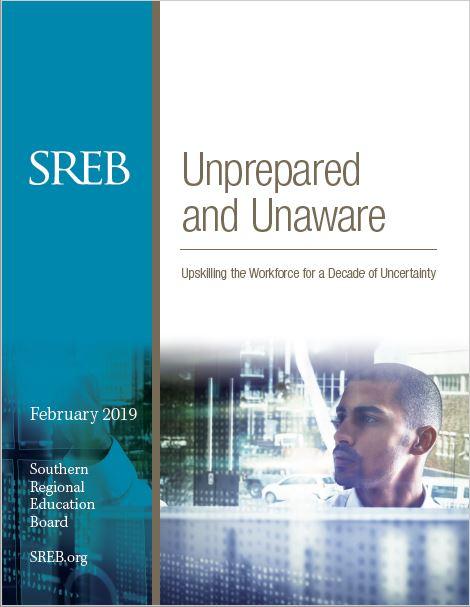Automation: Changing Jobs For Generations
Workforce changes are coming quickly, across the nation and especially in the South. In fact, they’re already here. Education and training across the SREB region will need to respond just as quickly to avoid severe economic outcomes.
Building on her previous work in Preparing the Workforce for a Decade of Uncertainty and Unprepared and Unaware, policy analyst Meagan Crowe joined SREB President Stephen Pruitt in a webinar to lay out the case that technological changes, particularly automation, will render millions of adults in the region — as well as their children — vulnerable to underemployment or worse.
Some highlights from the July 30 webinar:
- More than 50 million people work in states in the SREB region, and few will be untouched by automation in the coming years. Conservative estimates say that 23-44% of all work activities might be automated as early as 2030, with at least one job in 20 completely automatable. Particularly vulnerable business areas include production, sales, transportation, and food service.
- The most vulnerable workers will be those without education beyond high school. This means 18 million workers could be unemployable, with many others underemployed, laboring for lower wages and displacing, in turn, still other workers with less education or training.
- In similar domino fashion, this generation’s loss of opportunity will affect the next, as children frequently follow their parents’ levels of education and employment. And by 2030, for the first time in history, there will be fewer Americans of working age (25-64) than dependents, both older and younger, for them to support.
What’s needed — to keep communities flourishing, to ensure adults are prepared for the available jobs and businesses have the workers they need — is action. SREB is committed to working with its educational and policy partners to meet the coming challenge of workforce change.




